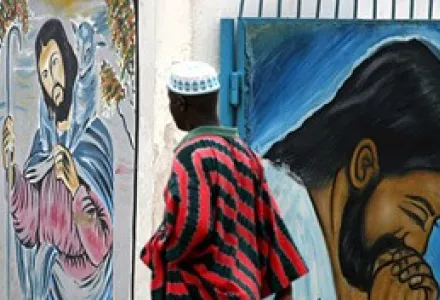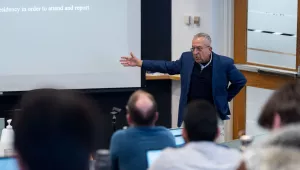Killing Cleavages: The Politics of Religious Diversity and Armed Conflict
Religious cleavages in and of themselves cannot predict the outbreak of civil war. Facing a similarly divided religious population, the strategies chosen by states dealing with diversity will be critical to the risk of violence. This seminar will discuss the theoretical and empirical limitations in the existing Religion-Conflict nexus, as well as suggest a new way of modeling conflict risk that accounts for the context of state policies that decide whether religious diversity turns deadly.
Please join us! Coffee and tea provided. Everyone is welcome, but admittance will be on a first come-first served basis.




